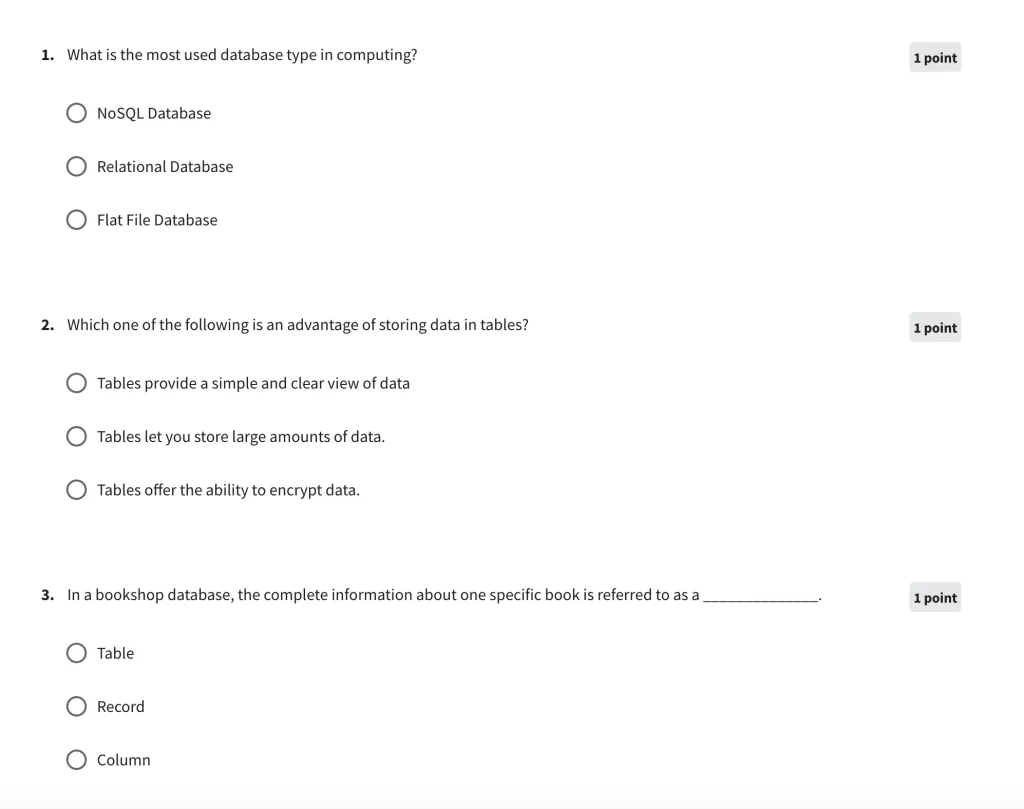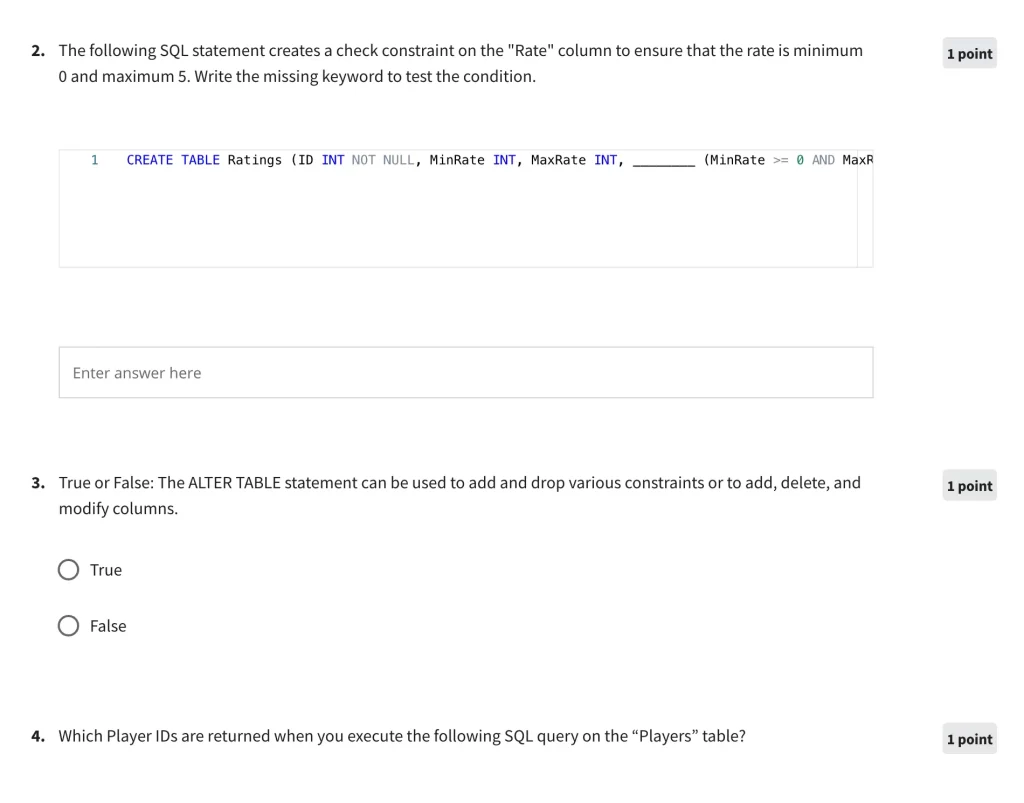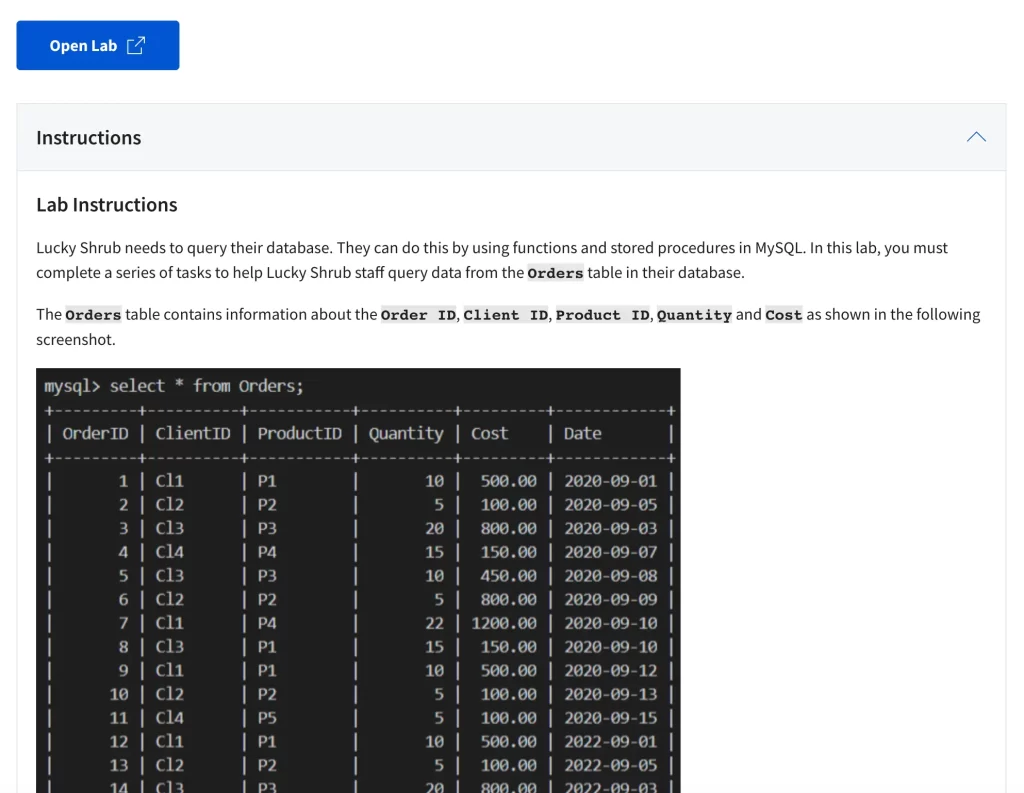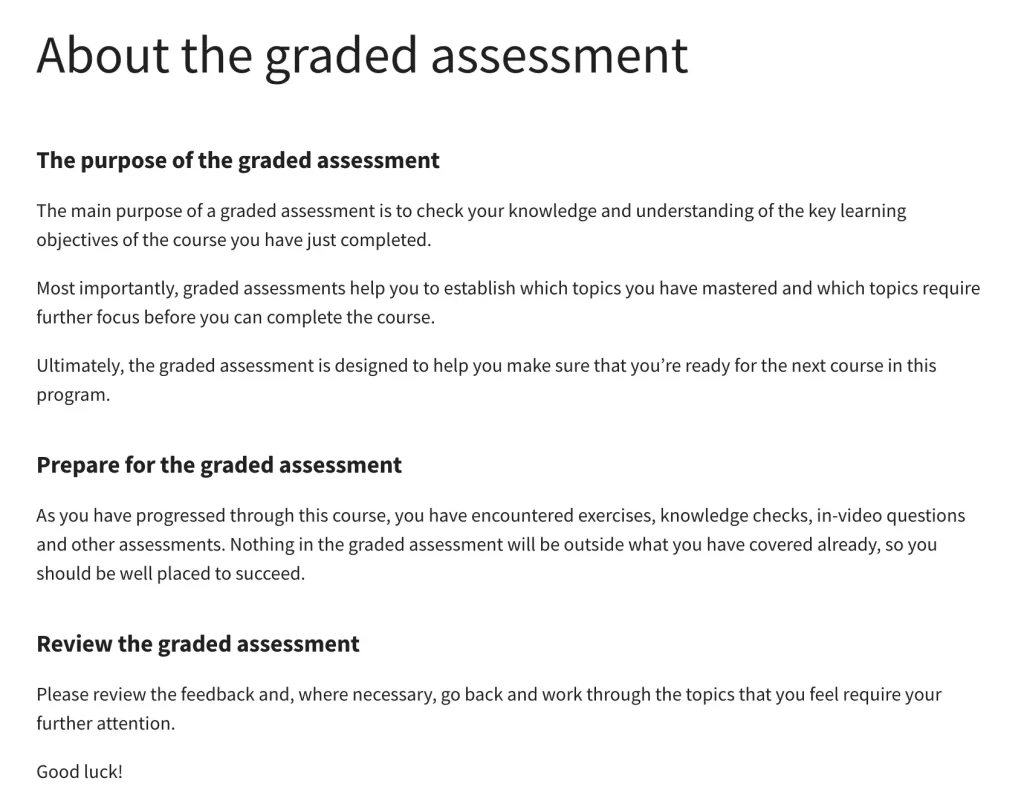- What is Meta Database Engineer Certificate?
- How Much Does Meta Database Engineer Certificate Cost?
- Meta Database Engineer Certificate Contents
- Meta Database Engineer Certificate Exams
- How Hard is the Meta Database Engineer Certificate?
- Is the Meta Database Engineer Certificate Worth it?
- Other Meta Career Certifications
Designed to help people launch their careers in the world of database engineering, the Meta Database Engineer Certificate will give you the job-ready skills you need to create, manage, and manipulate database environments.
In this review, you’ll get a closer look into all the courses included in this certification, how long it will take to get certified, and much more to help you decide if this is the right certification for you.
The Meta Database Engineer Certificate is a great option for anyone interested in starting a career in database engineering. The program includes nine courses covering everything you need to know about managing and manipulating databases.
Meta employees teach the course, and the material is comprehensive and actionable. It costs less than $300 to complete the course and get certified.
What is Meta Database Engineer Certificate?
The Meta Database Engineer Certificate is a comprehensive course designed to help beginners start a new career in database engineering and management.
This course requires no prior knowledge or credentials to start and will provide beginners with all the job-ready skills needed to pursue a new career within as little as six months.
The 100% self-paced course is taught by professionals from Meta and includes various learning resources, from written guides to videos and downloadable checklists. Plus, various hands-on projects help you demonstrate your job readiness to employers.
Upon completion of the course, students gain an industry-recognized certification and access to the Meta Job Board, where they can find potential roles shared by over 200 employers connected to the world of database management.
Who Should Follow this Certificate?
This certificate is ideal for anyone with interest in database management and manipulation. There are more than 63,000 job openings in data engineering throughout the US, and accredited engineers can earn a median salary of around $108,300 annually.
You don’t need any prior knowledge to get started, as the course will guide you through everything you need to know about leveraging programming languages like SQL and Python and how to use tools like Django to support websites and apps.
This course will prepare you for multiple job opportunities, including roles like data engineer, database engineer, data architect, solutions architect, analytics engineer, and data platform engineer.
What You’ll Learn?
The Meta Database Engineer Certificate is a comprehensive training course covering all the critical components of database management and manipulation, spread over nine courses. Each course offers crucial information about how databases work and provides students with the skills they need to use in their daily jobs.
The program covers core techniques and methods used to structure and manage databases, as well as advanced techniques for writing database-driven applications.
Throughout the course, you’ll also complete a series of 5 projects designed to help you demonstrate your proficiency in different aspects of database engineering.
For instance, you’ll demonstrate your skills in database normalization by structuring a relational database with specific connections between relational schema and entities. You’ll also learn how to:
- Demonstrate your proficiency in SQL syntax and explain how it’s used in a database
- Create your own databases from scratch with excellent management and optimization
- Write database-driven applications with Python to connect clients and MySQL databases
- Maintain a working knowledge of advanced data modeling strategies
- Solve real-world problems with data modeling, storage, automation, and optimization
Time Investment and Certification
The time needed to complete the Meta Database Engineer Certificate is six months (studying 6 hours per week) and can be completed 100% online.
There are approximately 170 hours of content to cover in total, as well as a variety of hands-on projects to submit before you can finish the course. You will need to complete every course and finish a capstone project before you earn your certificate.
How Much Does Meta Database Engineer Certificate Cost?
The total cost to get the Meta Database Engineer Certificate is $294. Coursera offers the course through the Coursera Plus subscription, which costs $49 per month. On average, it takes six months for students to complete the course and get certified.
Coursera offers a 7-day free trial to review the course material before committing to a paid plan.
Meta Database Engineer Certificate Contents
- Introduction to Databases
- Version Control
- Database Structures and Management with MySQL
- Advanced MySQL Topics
- Programming in Python
- Database Clients
- Advanced-Data Modeling
- Database Engineer Capstone
- Coding Interview Preparation
Course 1: Introduction to Databases
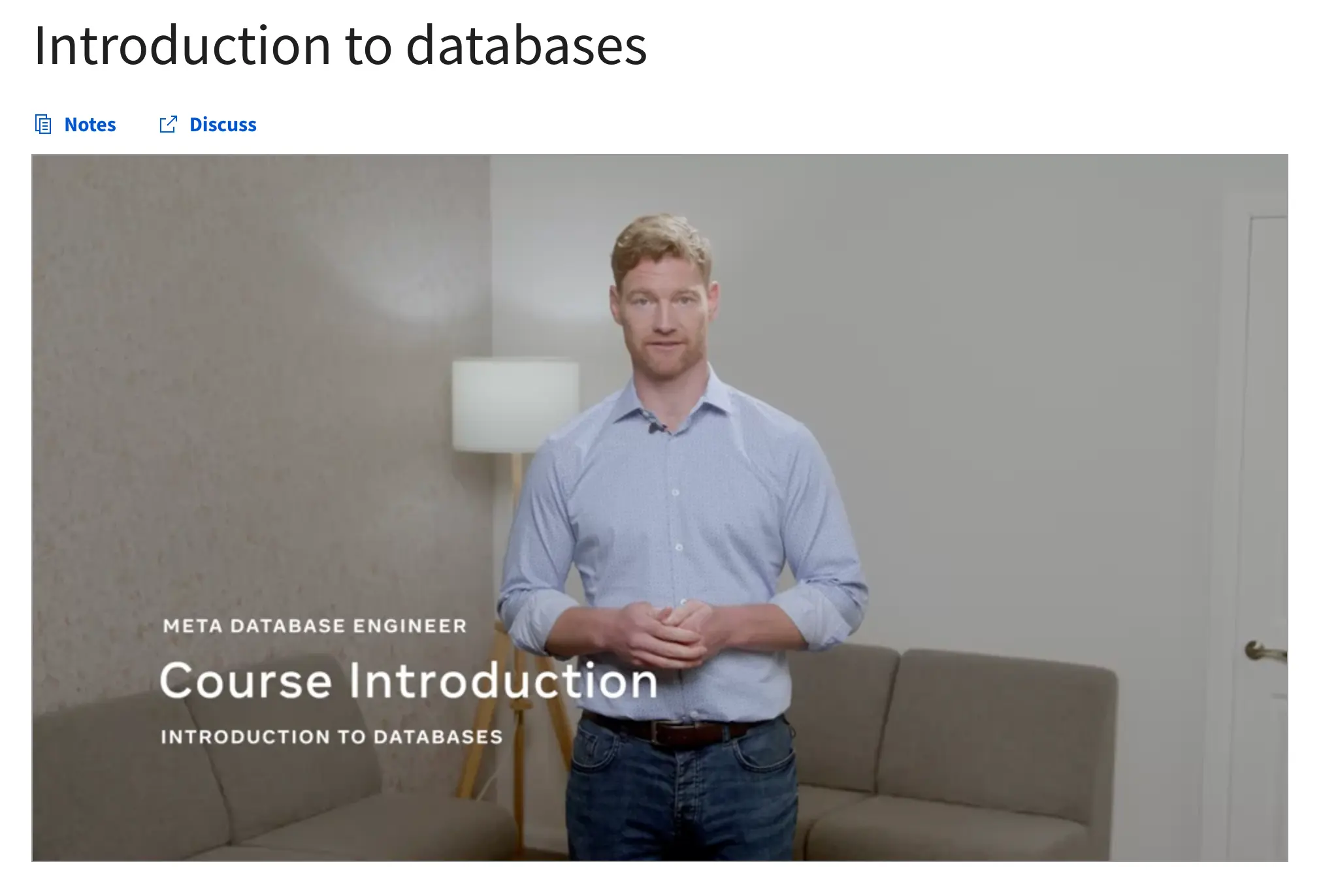
The first course in the Meta Database Engineer certificate introduces learners to the basics of databases and their use.
You’ll learn to distinguish between the different databases and practice basic SQL commands.
The course is split into five weeks, starting with a basic introduction to databases and what a database engineer might do daily.
Week 1 of the course will tell you all about SQL and the structure of a standard database.
Week 2 introduces “CRUD” operations, with insights into numeric data types and how to create tables. There are also ten practice exercises to complete.
In week 3, you’ll learn about SQL operators and how to sort and filter data.
Week 4 introduces the concept of database design and how to use different types of database normalization techniques. There are also various knowledge reviews and quizzes to complete.
You'll demonstrate your knowledge in the course's final week with a graded assessment.
| Topic | Time To Complete | |
|---|---|---|
| Week 1 | Introduction to Databases | 4 hours |
| Week 2 | Create, Read, Update and Delete (CRUD) Operations | 11 hours |
| Week 3 | SQL Operators and sorting and filtering data | 5 hours |
| Week 4 | Database design | 6 hours |
| Week 5 | Graded assessment | 1 hour |
Course 2: Version Control
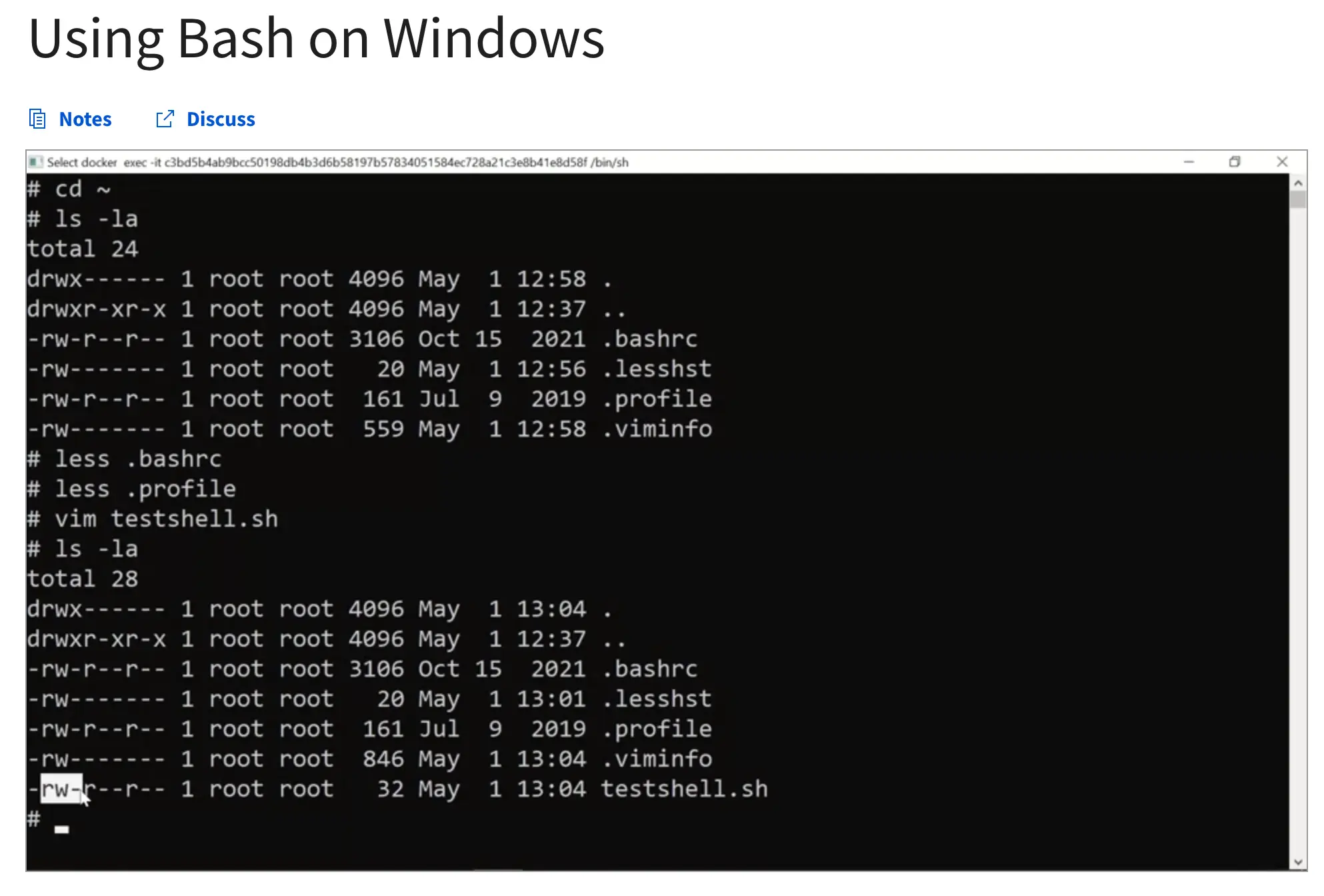
In the second course of the Meta Database Engineer Certificate, you’ll look at different version control systems and how teams create effective software development workflows. This 13-hour course is split into four weeks of lessons.
During week 1, you’ll learn about software collaboration, with insights into version control and which tools you can use to preserve code versions.
Week 2 introduces the “command line” and how it's used to execute commands in Linux. You’ll discover how to use piping and redirection to create workflows to automate your tasks.
In week 3, students get a behind-the-scenes look at Git technology and its use in software development projects for teams.
In week 4, you’ll be asked to demonstrate your knowledge of version control in a graded assignment.
| Topic | Time To Complete | |
|---|---|---|
| Week 1 | Software collaboration | 2 hours |
| Week 2 | Command Line | 3 hours |
| Week 3 | Working with Git | 5 hours |
| Week 4 | Graded Assessment | 2 hours |
Course 3: Database Structures and Management with MySQL
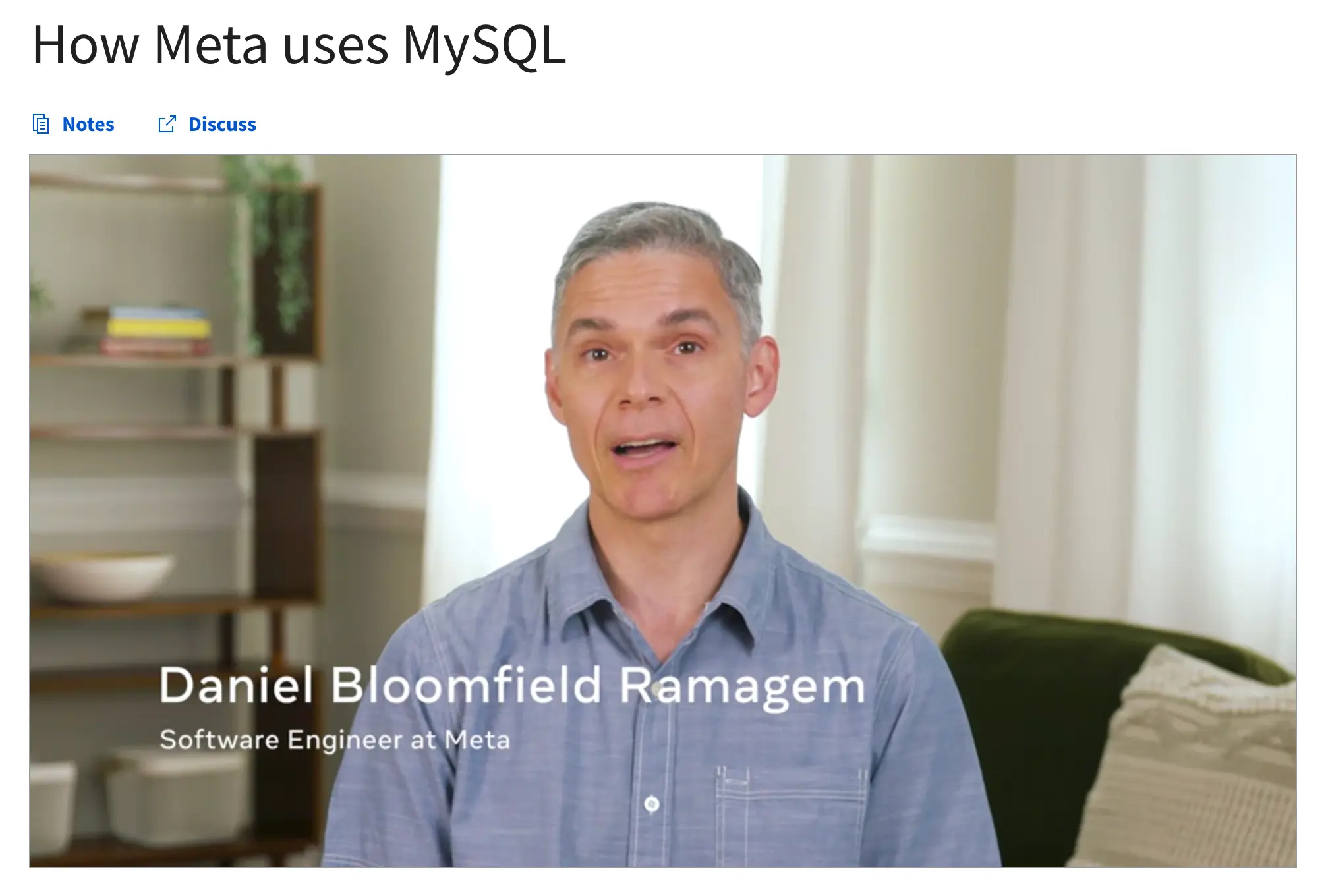
Course 3 of the Meta Database Engineer certificate helps students develop a working knowledge of MySQL DBMS (Database Management System).
You’ll learn how to create databases, manipulate data, and use SQL statements, data types, and clauses.
This course is broken down into four weeks, consisting of around 32 hours of learning.
In week 1, students begin with an introduction to MySQL, covering everything from how Meta uses MySQL to how you can use filtering strategies, MySQL aliases, and logical operators.
Week 2 explores the concepts of updating databases and working with different views to manage data.
Week 3 looks at functions and MySQL stored procedures. Students will learn about data types, control flow functions and complete six practice exercises.
The final week of the course asks students to complete a graded assessment where they can showcase what they’ve learned so far and identify strengths and weaknesses.
| Topic | Time To Complete | |
|---|---|---|
| Week 1 | Intro to MySQL | 9 hours |
| Week 2 | Updating databases and working with views | 14 hours |
| Week 3 | Functions and MySQL stored procedures | 7 hours |
| Week 4 | Graded assessment | 3 hours |
Course 4: Advanced MySQL Topics
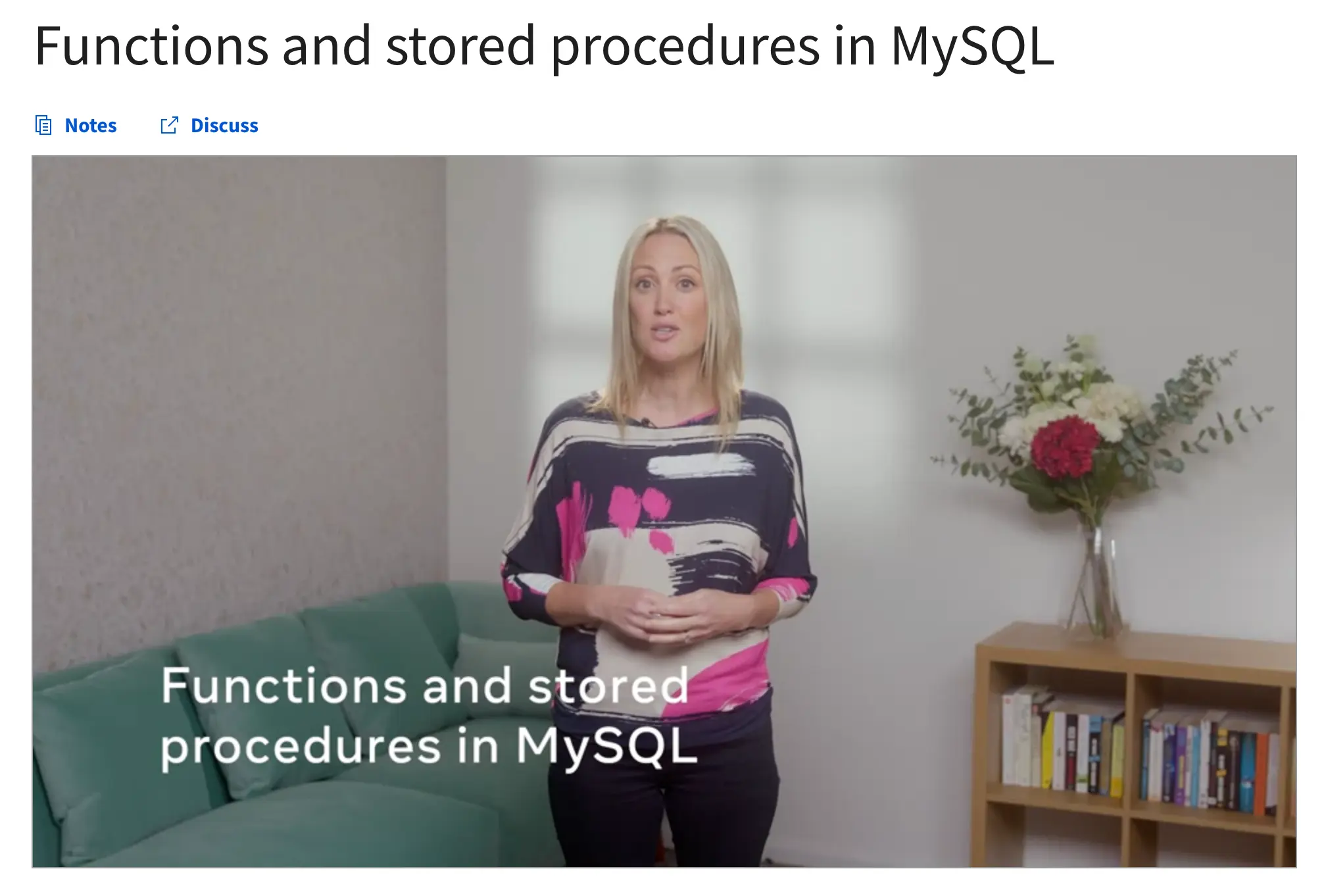
The fourth course in the Meta Database Engineer Certificate takes your knowledge of the SQL landscape to the next level.
Students can begin learning how to optimize their MySQL database queries, demonstrate a working knowledge of common table expressions, and utilize various subqueries, transactions, views, and JOINS for MySQL.
The first week of the course looks at functions and triggers for managing complex stored procedures in MySQL.
In week 2, you’ll focus on database optimization, looking at concepts like indexes in MySQL, common table expressions, and JSON.
Week 3 looks at how to use MySQL for data analytics effectively. You'll examine how to extract data from multiple tables using JOINTS and learn about data analysis in MySQL using SQL queries.
In the 4th week of the course, you’ll practice your SQL automation skills by writing a stored procedure to solve common real-world issues.
| Topic | Time To Complete | |
|---|---|---|
| Week 1 | Functions and triggers | 6 hours |
| Week 2 | Database optimization | 6 hours |
| Week 3 | MySQL for data analytics | 3 hours |
| Week 4 | Final project | 3 hours |
Course 5: Programming in Python

The fifth week of the Meta Database Engineer certificate introduces students to foundational programming skills with Python.
In this course, you’ll learn how to use code to solve problems, taking a deep dive into the popular libraries, tools, and modules of Python. This is one of the longest courses in the certificate, lasting approximately 45 hours.
The 1st week of the course covers the basics of the Python language. Here, students will learn how Python is used in the real world and how they can experiment with strings, variables, and data types.
Week 2 explores basic programming with Python, teaching students how to use control flows and loops to work with data structures and functions. You’ll also learn how to recognize issues in your code.
During week 3, Meta’s course looks at programming paradigms and logical concepts. You’ll learn about algorithmic complexity, functional programming, and object-oriented programming.
In week 4, the course looks at modules, packages, libraries, and tools in Python, exploring options like NumPy, PyTorch, and Tensorflow.
Week 5 requires students to complete an end-of-course graded assessment, where they’ll be tested on their knowledge of the Python landscape.
| Topic | Time To Complete | |
|---|---|---|
| Week 1 | Getting started with Python | 8 hours |
| Week 2 | Basic Programming with Python | 10 hours |
| Week 3 | Programming paradigms | 15 hours |
| Week 4 | Modules, packages, libraries, and tools | 10 hours |
| Week 5 | End-of-Course Graded Assessment | 1 hour |
Course 6: Database Clients
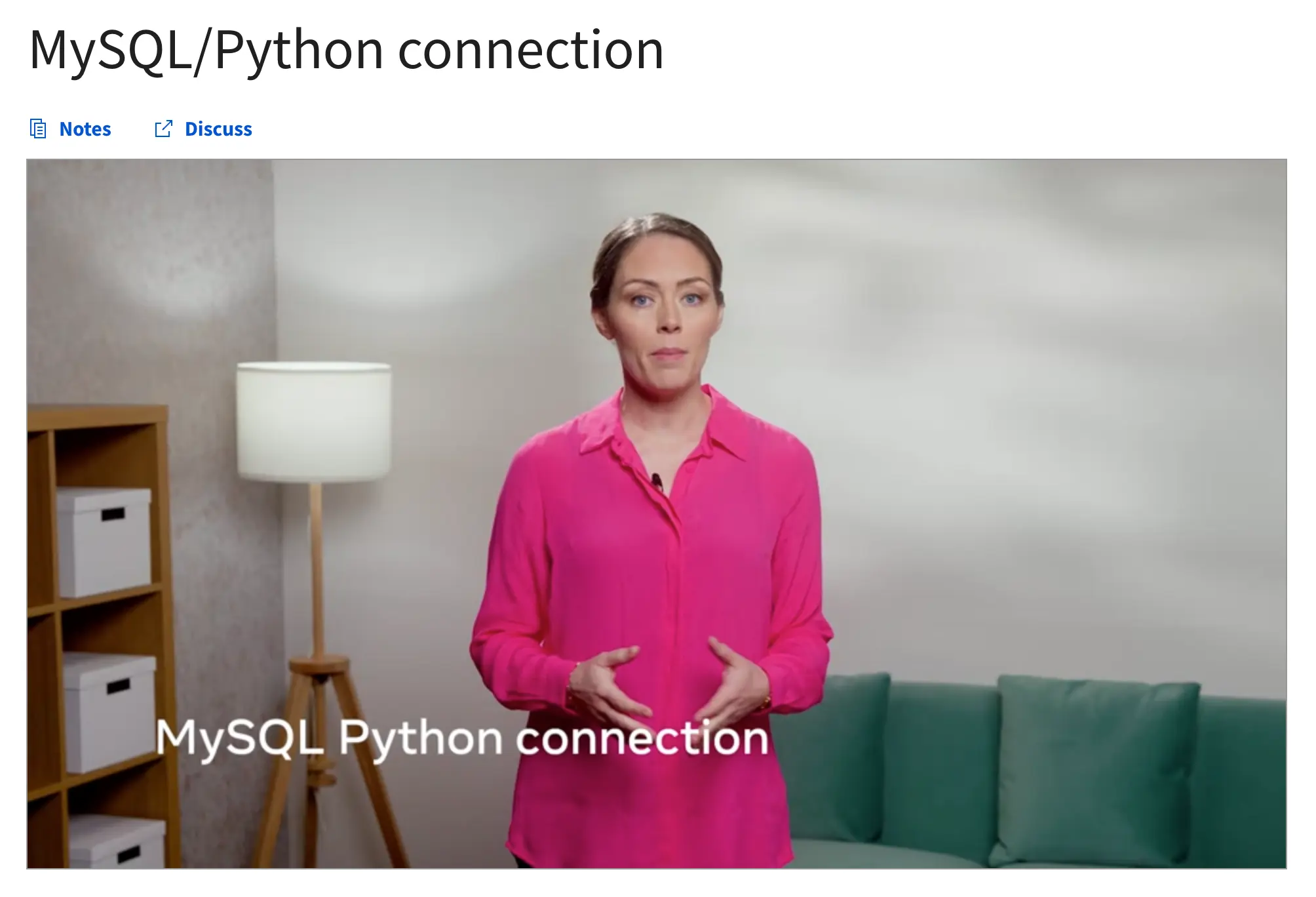
In the 6th course of the Meta Database Engineer Certificate, students explore how to write database-driven applications with Python by creating apps that can connect to MySQL databases.
The course is split into four weeks, covering everything from how to utilize python code for populating and manipulating MySQL databases to creating Python applications.
Week 1 of the course examines Python's methods for interacting with MySQL databases. You’ll learn about Database engineering at Meta, with real-life case studies, and discover how to make MySQL/Python connections.
In week 2, students explore how to perform queries in MySQL from Python apps.
Week 3 explores advanced topics in MySQL and shows students how to work with DateTime functions in Python.
Finally, the fourth week of the course asks students to apply the skills they’ve learned to create their own helpful application for administering a MySQL database.
| Topic | Time To Complete | |
|---|---|---|
| Week 1 | Interacting with a MySQL database using Python | 2 hours |
| Week 2 | Performing queries in MySQL using Python | 1 hour |
| Week 3 | Working with a Database Client | 1 hour |
| Week 4 | End-of-Course Graded Assessment | 1 hour |
Course 7: Advanced Data Modeling
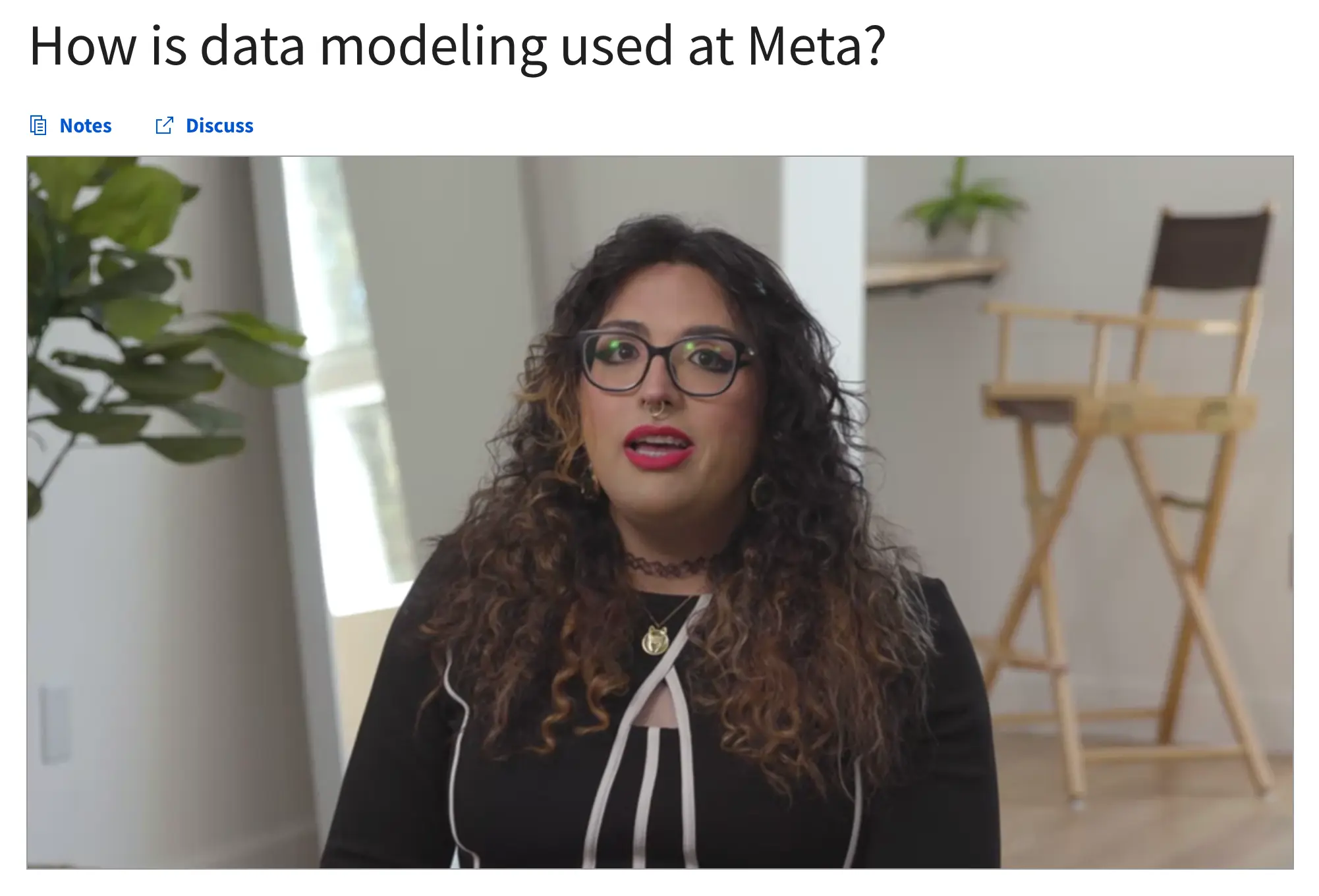
Course 7 for this Meta certification looks at advanced data modeling and management with a straightforward set of lessons.
In week 1, you’ll learn how to use MySQL workbench to model, design, and generate databases visually.
There are also tips on how Meta uses data modeling and management strategies effectively.
In week 2, you’ll look at how you can apply data to real-world projects to make critical decisions.
| Topic | Time To Complete | |
|---|---|---|
| Week 1 | Data modeling and management | 1 hour |
| Week 2 | Model and analyze data | 1 hour |
Course 8: Database Engineer Capstone
The Database Engineer Capstone module in the Meta Database Engineer certificate course is the final hands-on project you’ll need to complete to earn your certification.
The course asks students to demonstrate their knowledge in building a MySQL database solution with data modeled from a web app.
Course 9: Coding Interview Preparation
The final course prepares students for pursuing their new careers in database engineering. This simple course covers a range of tips on preparing for a coding job interview and showcasing your unique skills.
Here, students learn how to present the right image to potential employers, master the interview process, and more. Plus, you’ll have an opportunity to discuss your concerns about job seeking and interviews with other successful students.
Meta Database Engineer Certificate Exams
To successfully complete the Meta Database Engineer Certificate, students must complete the following:
- All of the modules included in the course
- All the quizzes and knowledge tests
- All graded assessments
Additionally, after completing the first seven courses in the certification, you will be required to complete a Database Engineer capstone project, where you demonstrate your skill set by designing and developing your own database solution.
Here are a couple of examples of how the exam questions look like:
How Hard is the Meta Database Engineer Certificate?
The Meta Database Engineer Certificate is not hard to get as it is designed for beginners. You do not need any prior knowledge or expertise to begin.
However, Meta recommends that students have a basic working knowledge of a standard computer operating system and familiarity with commonly used web browsers like Google Chrome or Microsoft Edge.
The modules and lessons in this course are comprehensive and easy to follow, with practical examples, case studies, and convenient videos to watch. You can also take each course section at your own pace and practice your skills with knowledge reviews and quizzes.
With various hands-on projects, resources, and downloadable course content to assist you, you should be able to prepare for a new career in database engineering.
Is the Meta Database Engineer Certificate Worth it?
The Meta Database Engineer Certificate is definitely worth it. The skills you’ll earn from the Meta Database Engineer Certificate will prepare you for various roles in the data landscape, from solutions architect to data engineer. Plus, you’ll earn a well-recognized certificate from one of the better-known companies in the technical landscape.
Database engineers can apply for some of the highest-paying jobs in the tech industry. At present, the need for this specific skill set is growing.
Available job roles are expected to increase by around 22% by 2030, meaning successful students should have a range of opportunities available.
According to Indeed, the average salary for a database engineer can be around $112,284 per year, making this job opportunity fantastic for those looking to earn high wages.
Other Meta Career Certifications
You can read our detailed reviews of other popular Meta certifications and Google Certifications to decide which is the best certification for your career.

